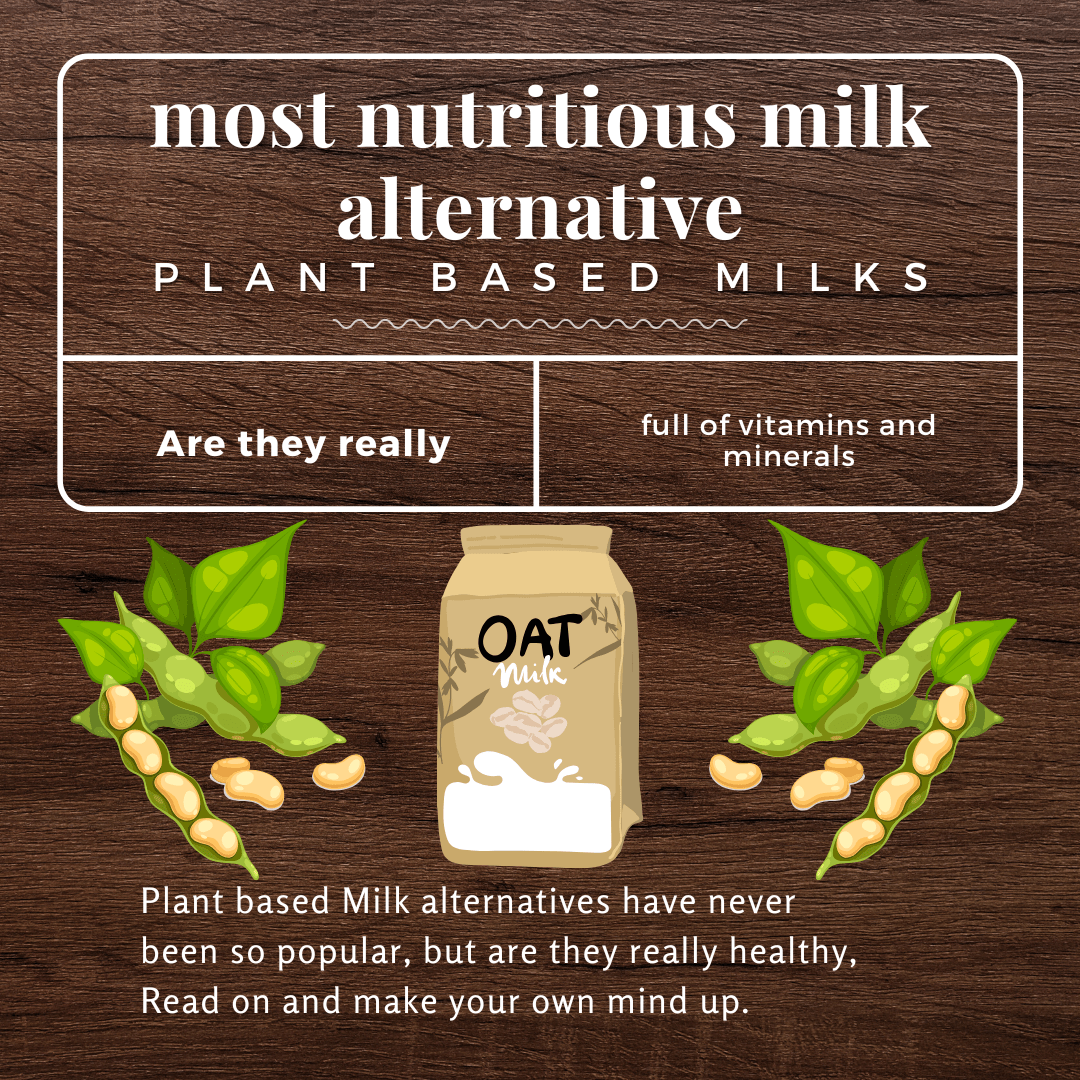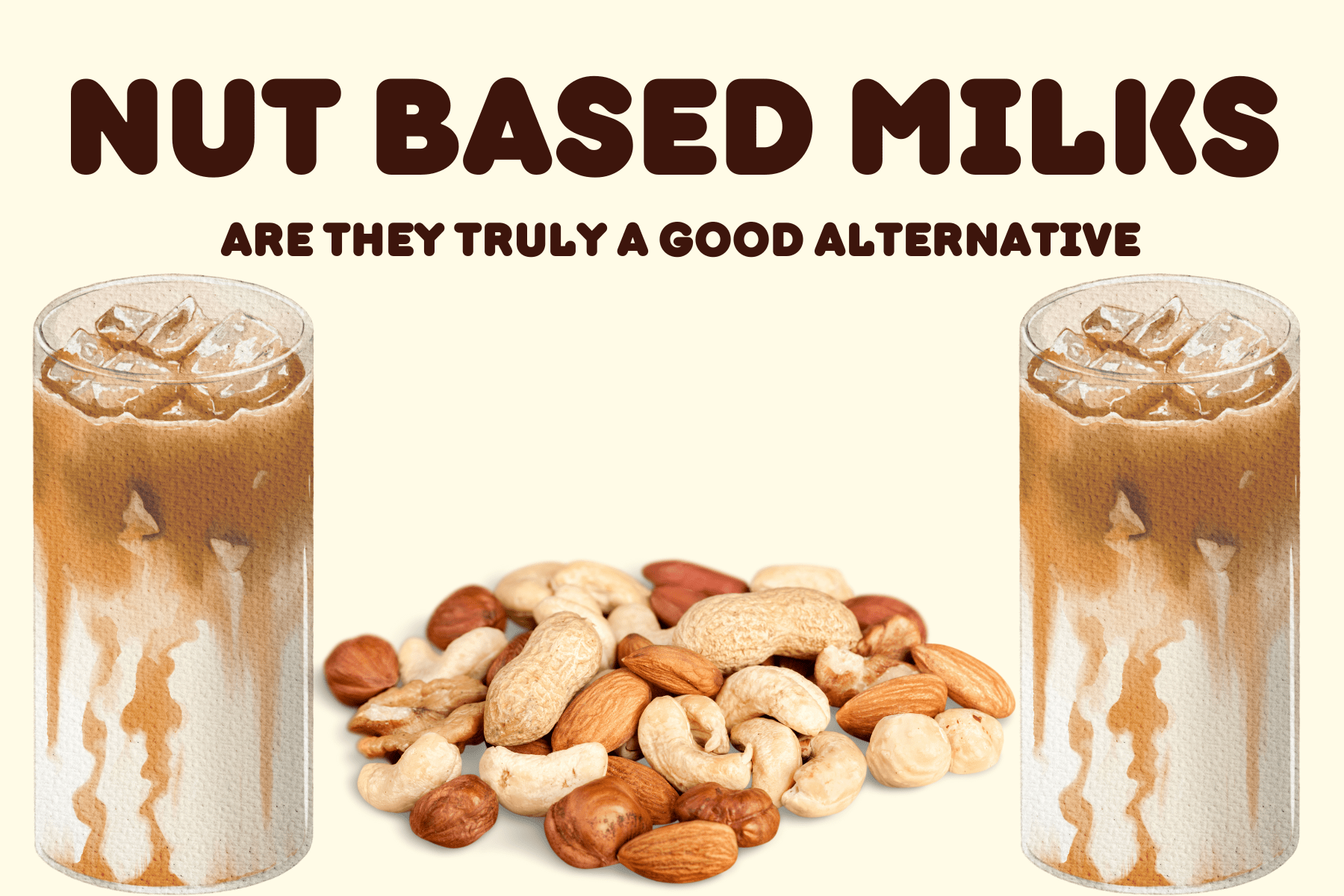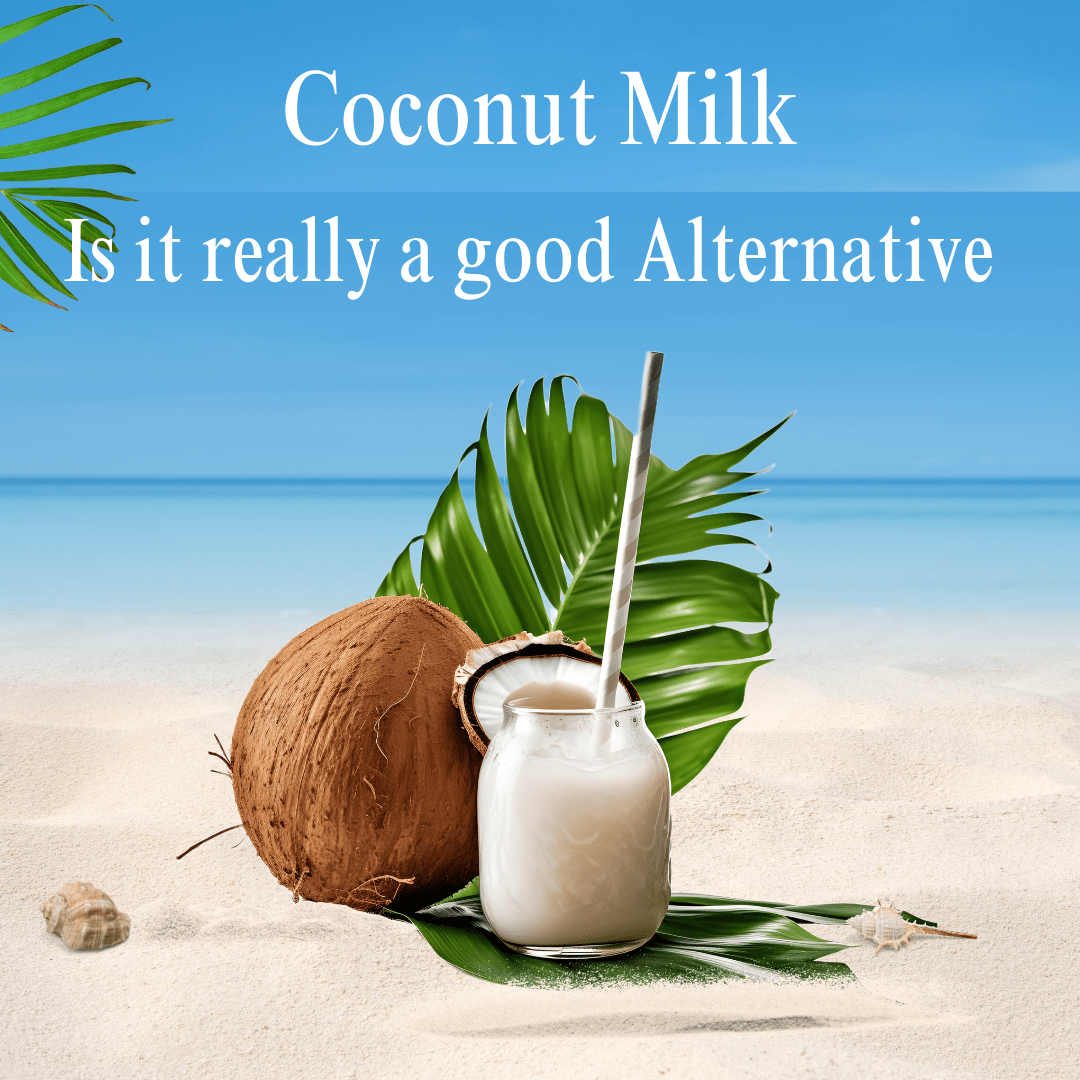
Most nutritious milk alternative-plant based milks
The rise in popularity of these nourishing most nutritious milk alternative and plant-based milks has been astronomical over the past decade. Marketed as healthier and wholesome, more environmentally friendly alternatives to dairy, these plant based milk substitutes, such as almond, soy, oat, and coconut milk—have become staples in many households. While they offer benefits such as being lactose-free and suitable for vegans, there is a lesser-discussed side to these trendy beverages. Many plant-based milks contain additives, antinutrients, and other substances that can have adverse effects on human health. In this article, we will explore the downsides of these milk alternatives, the conditions they may contribute to, and what you should consider before making the switch.
–> Plant based milk linked to colon cancer.
Most nutritious milk alternative-plant based milks
Lack of Essential Nutrients
One of the primary issues with these so called wholesome plant-based milk is the lack of essential nutrients that are found in traditional dairy milk. Cow’s milk is a rich source of calcium, vitamin D, vitamin B12, and protein—nutrients that are crucial for bone health, muscle function, and overall bodily processes. Most plant-based milks require fortification with synthetic vitamins and minerals, which may not be absorbed as efficiently by the body.
Harmful Additives and Preservatives are commonly used in these most nutritious milk alternative-plant based milks.
To improve taste, texture, and shelf life of these most nutritious milk alternative drinks manufacturers often add stabilisers, thickeners, and artificial flavourings to plant-based milks. Some of these include:
- Carrageenan – Used as a thickening agent, this additive has been linked to gastrointestinal inflammation and may contribute to digestive disorders such as irritable bowel syndrome (IBS).
- Vegetable oils – Certain kinds of these most nutritious plant-based milk alternative drinks contain sunflower or rapeseed oil, which are high in omega-6 fatty acids. Excess consumption of omega-6 can lead to an imbalance in the body’s omega-3 to omega-6 ratio, contributing to inflammation and chronic diseases.
- Artificial sweeteners and sugars – Many plant based milks contain added sugars to enhance their taste. Consuming excess sugar has been linked to obesity, insulin resistance, and type 2 diabetes.
Soy Milk and Hormonal Disruptions
Soy milk is often praised for its protein content, but it also contains phytoestrogens—plant compounds that mimic oestrogen in the body. Overconsumption of soy products may lead to:
- Hormonal imbalances, particularly in men and women with pre-existing endocrine issues.
- Potential thyroid dysfunction, as soy contains goitrogens that can interfere with thyroid hormone production.
- Allergic reactions, as soy is a common allergen that can trigger symptoms such as bloating, diarrhoea, and skin rashes.

Nut-Based Milks and Digestive Sensitivities
Almond, cashew, and other nut-based milks may cause problems for individuals with nut allergies or sensitivities. Even those without allergies can experience some of the following symptoms:
- Bloating and gas due to the presence of antinutrients such as phytic acid, which inhibits mineral absorption.
- Gastrointestinal discomfort from added gums and emulsifiers, which can disrupt gut bacteria and lead to an upset stomach.
Blood Sugar Spikes and Weight Gain
Oat Milk and High Glycaemic Index
Oat milk is a popular choice due to its creamy texture and natural sweetness. However, oat milk has a high glycaemic index (GI), meaning it can cause rapid blood sugar spikes. This is particularly concerning for:
- Diabetics who need to regulate blood sugar levels.
- Individuals trying to manage weight, as frequent blood sugar fluctuations can lead to increased hunger and cravings.
- Those prone to insulin resistance, which can eventually develop into type 2 diabetes if not controlled.

Coconut Milk and High Saturated Fat Content
Coconut milk is often perceived as a healthy most nutritious milk alternative to dairy due to its natural source of medium-chain triglycerides (MCTs). However, excessive consumption can contribute to:
- Increased cholesterol levels, which may contribute to a higher risk of cardiovascular disease.
- Weight gain, as coconut milk is calorie-dense and can easily lead to excess caloric intake if not consumed in moderation.
Environmental and Ethical Concerns
While plant-based milks are often touted as being environmentally superior to dairy, they are not without their own sustainability issues:
Almond milk production requires massive amounts of water, with one litre requiring approximately 6,000 litres of water.
Soy farming has led to deforestation, particularly in South America, contributing to habitat destruction.
Coconut farming is associated with unethical labour practices, including exploitation of workers in tropical regions.
Conclusion: Should you be drinking these most nutritious Plant based milk alternative?
While these most nutritious milk alternative plant based milks have their place in the market, it is essential to approach them with caution. The presence of additives, potential digestive issues, nutritional shortcomings, and environmental concerns means that they are not necessarily the superior option they are often marketed to be.
For those who choose to consume plant-based milk, consider the following:
- Choose unsweetened options to minimise sugar intake.
- Look for brands that minimise additives and use natural fortification methods.
- Rotate different types of milk to reduce the risks associated with overconsumption of any single variety.
- If choosing plant-based milk for health reasons, ensure you are supplementing any missing nutrients appropriately.
In the end, the best choice for you will depend on your dietary needs, health conditions, and personal values. Being informed about the downsides of plant-based milks ensures that you can make the best decision for your well-being and long-term health.

 Seed Oil Extraction: What’s Really in Your Cooking Oils?
Seed Oil Extraction: What’s Really in Your Cooking Oils?



